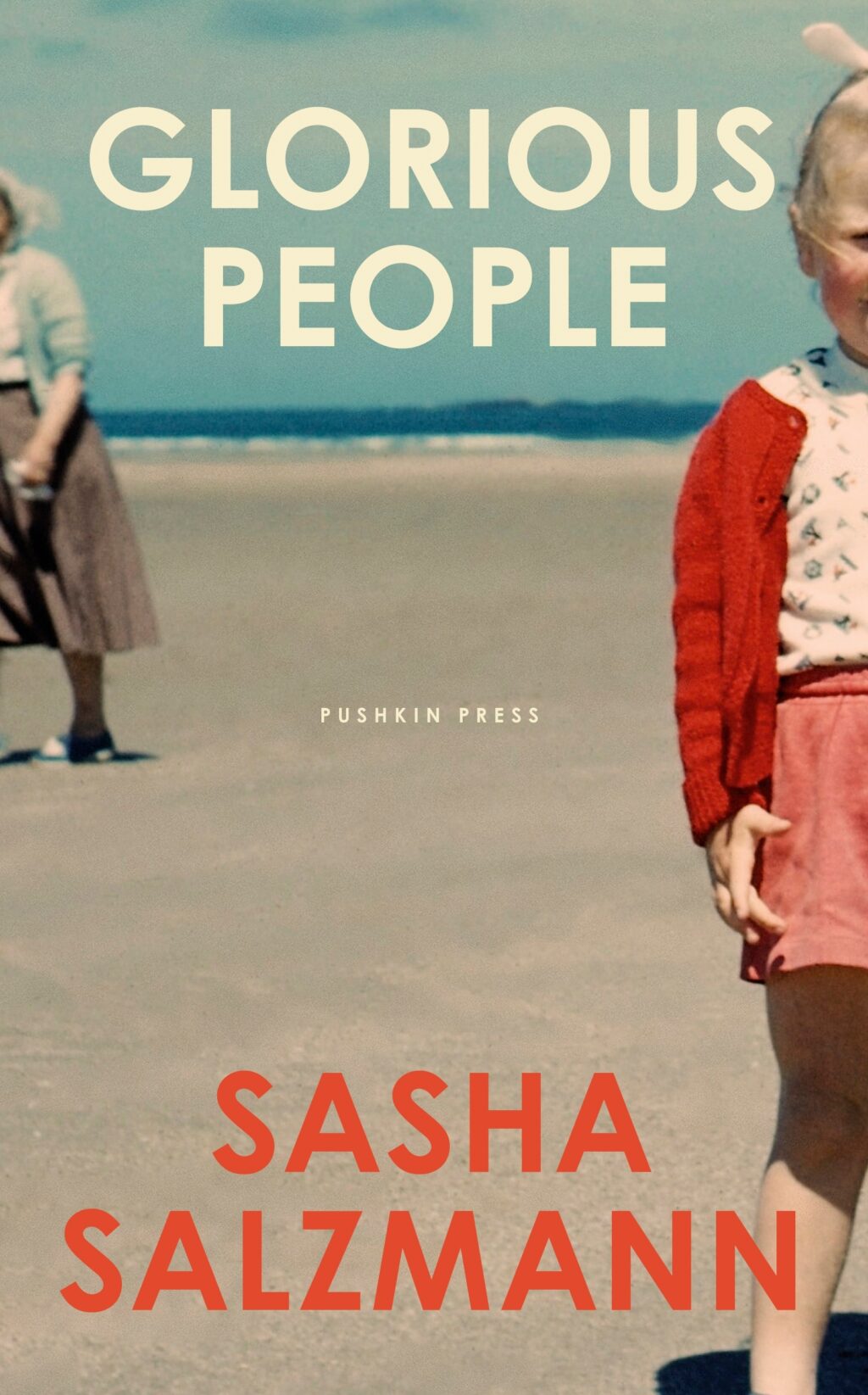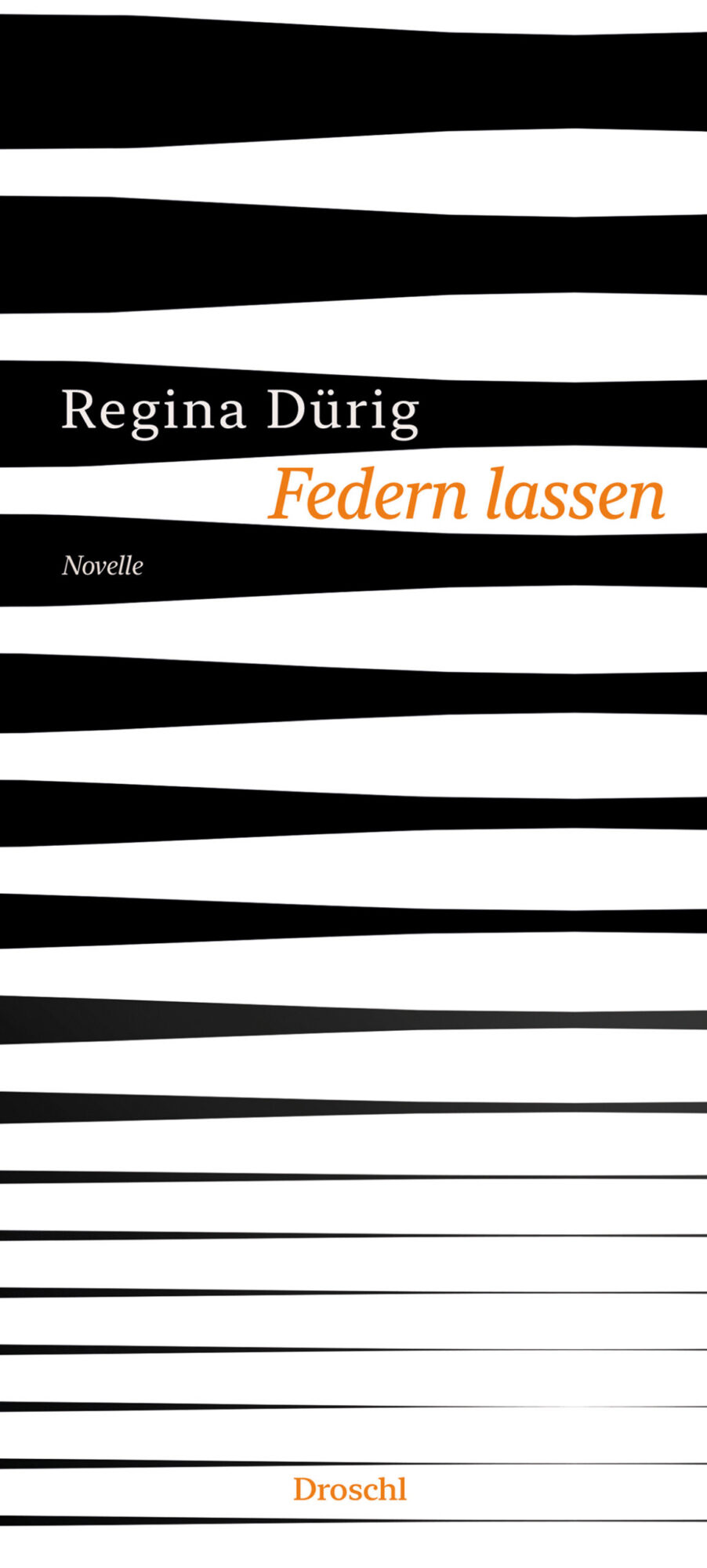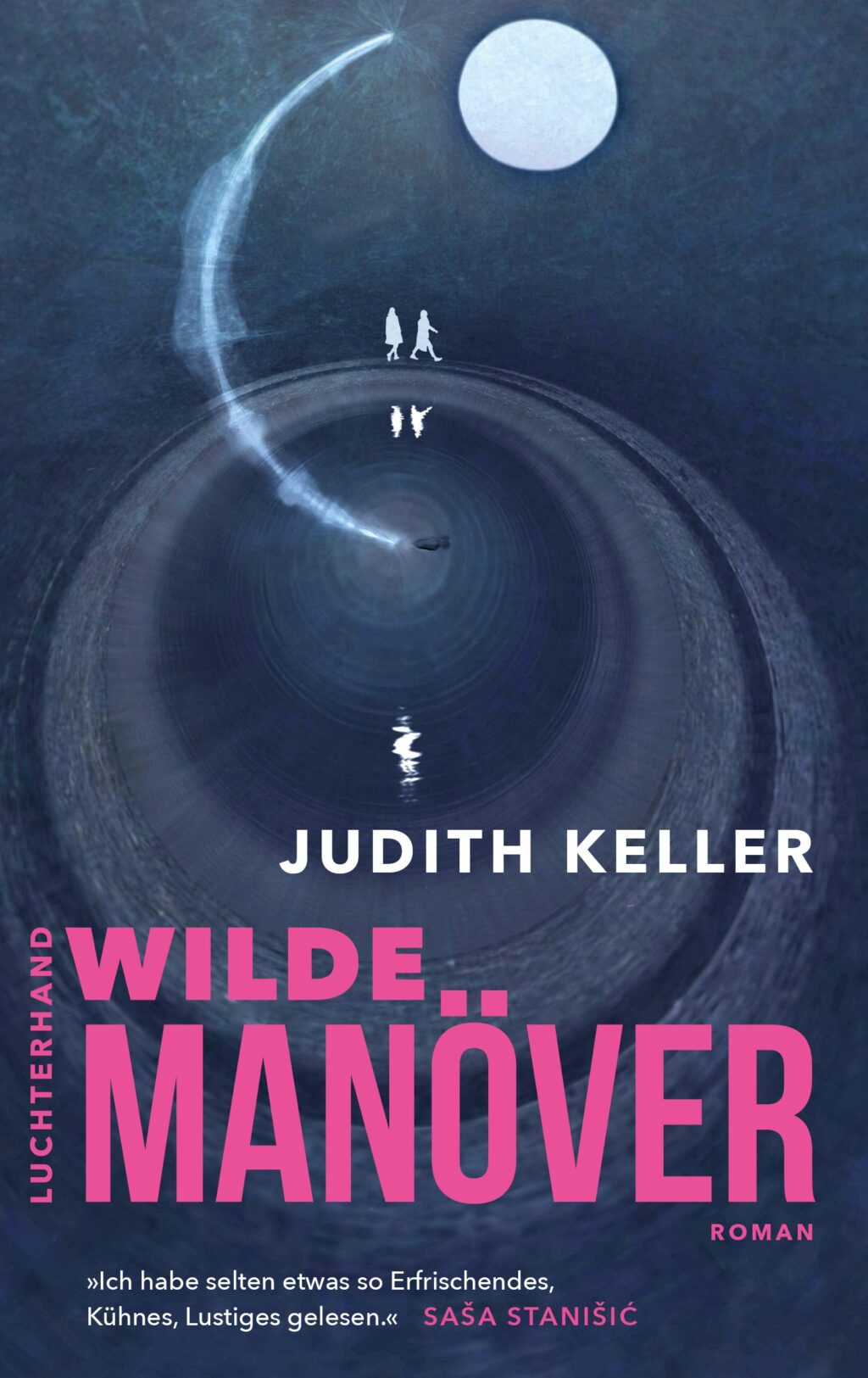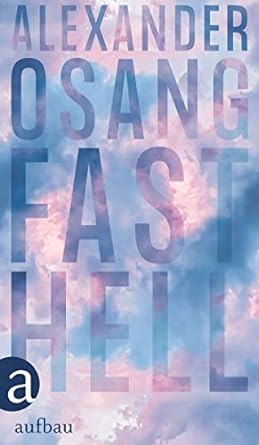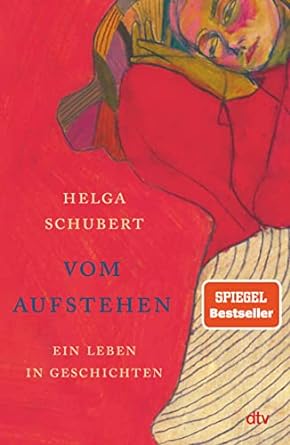The Director of Deutsches Haus at NYU answers our questions on her organisation’s work, feeling like a New Yorker (and a Berliner), how the complexity of the GDR is explored in literature and her work as an NBG juror.
Thanks for speaking to NBG today! Where are you and what are you doing at the moment?
I am currently in my office at Deutsches Haus at NYU, which is located on the Washington Mews in Manhattan, working on preparations for our first public events of the spring semester and looking out at our beautiful courtyard, currently covered by a glistening dusting of snow—a magical (and at this point rare) Manhattan winter view.
What path did you take to become Director of Deutsches Haus at NYU? What is the best thing about your role?
I have been following the cultural and educational professional path for a while now. I joined Deutsches Haus at NYU in 2013 as cultural program coordinator and became its director ten years ago. Previously, I had served as program curator at the Goethe-Institut New York, and before that, I worked at MoMA’s Department of Film in New York.
One of my favorite things about working at Deutsches Haus at NYU is that it is never boring! 🙂 Every day holds surprises and challenges, which our small team of amazing women navigates with great passion and skill. We offer daytime and evening German-language classes for adults and children, and we present a cornucopia of public events, making our little Haus a beehive of activities (fun fact: at some point in its long history our building housed a sandwich shop named Busy Bee). Students, instructors, speakers, guests, and random visitors are always crossing paths— a wonderful opportunity for cross-pollination and a constant source of inspiration and food for thought for everyone working and visiting here.
Deutsches Haus at NYU provides New Yorkers with a forum for exchange with three countries – Austria, Germany, and Switzerland – through three programmes of work: via your language, culture, and children’s programme. Can you tell us a little more about how Deutsches Haus at NYU works and what you aim to do?
Our readings, talks, concerts, exhibitions, conferences, conversations, and film screenings (held in English, and free and open to the general public) attract a diverse and involved audience of New Yorkers who are interested in today’s artistic, cultural, and intellectual agenda and in transatlantic dialogue and exchange. Deutsches Haus at NYU’s mission is to be a unique forum for encounters among artists, writers, scientists, thinkers, public intellectuals, and academics engaged with the German-speaking world. Furthermore, Deutsches Haus at NYU (in collaboration with the Max Kade Foundation; the Deutscher Literaturfonds e.V.; Swiss Arts Council Pro Helvetia; the Austrian Federal Ministry for Arts, Culture, Civil Service and Sport; and Erste Bank) regularly invites authors and filmmakers from Germany, Austria, and Switzerland as part of its acclaimed and longstanding writer- and filmmaker-in-residence program.
Since its inception, Deutsches Haus at NYU has also been the leading provider of German-language courses for the wider New York City community. We are dedicated to meeting our students’ needs and understanding their diverse motivations for learning German (including, but not limited to, love, travel, and career). Each individual student is provided with the best instruction possible, through our small class sizes and the innovative, thoughtful, and creative German lessons delivered (in person or virtually) by our team of highly qualified and experienced instructors.
Last but not least, we offer fun German-language classes and educational activities for children, including celebrations of traditional festivities as well as theater performances and workshops with authors and illustrators.
Do you feel like a New Yorker?! If so, why? If not, why not?
Yes, I do feel like a New Yorker. New York is a tough city but a welcoming one, and I have felt at home here—thanks to the amazing people from all over the world I have been lucky to meet and connect with—since coming to live in this ever-changing metropolis over 25 years ago.
That said, I still feel very much like a Berliner as well. I grew up in Berlin and continue to feel quite connected to the German capital (even though today’s Berlin is quite different from the divided city of my childhood). Despite their notable differences, New York and Berlin share an elective affinity, and I am grateful to be part of these two intriguing cities which offer so much inspiration.
Deutsches Haus at NYU is based at NYU in Greenwich Village. How does your affiliation with the University support your work? Are you engaged with the local Greenwich Village community?
Deutsches Haus at NYU was founded almost 50 years ago and has been part of NYU ever since. We are located on the beautiful Washington Mews in New York’s historic Greenwich Village district. In 1977, NYU provided the institution with this house at the corner of a private cobblestone alley north of Washington Square Park. The building had originally served as a coach house for one of the mansions on Washington Square North and was carefully restored according to its original 1821 design. Later, the building would serve as the art studio for several renowned sculptors, including, from 1917–1921, Paul Manship, who designed the famous Prometheus sculpture at Rockefeller Center.
Since 1977, this small architectural marvel has formed part of the vibrant community of NYU’s International Houses, hosting and presenting a diverse and cutting-edge cultural program. The landmark building offers an exhibition space, an auditorium opening onto a charming courtyard, and several classrooms. The affiliation with NYU and its location in the lively Greenwich Village neighborhood place Deutsches Haus at NYU at the center of a highly concentrated academic and culturally engaged community and have been perfect for establishing a cross-cultural meeting place open to students and the general public.
I noticed that two of the writers you hosted as part of your writer-in-residence program last year—Regina Dürig and Sasha Marianna Salzmann—have had books selected by the NBG jury. What is it that you aim to do through your residency program?
The German-language authors we have been inviting since 1981 for our writer-in-residence program are provided with the opportunity to experience the inspiration and challenge of this unique metropolis. They stay in our writer-in-residence apartment on nearby Bleecker Street and we help them establish contact with local readers, critics, publishers, editors, translators, and the rich pool of New York-based authors and public intellectuals.
Recent writers-in-residence have included—in addition to the above-mentioned Regina Dürig and Sasha Marianna Salzmann—Andrea Grill, Jan Brandt, Judith Keller, and Emanuel Maeß. Needless to say, our audience also benefits from the German-language authors’ presence in New York, as we always present public events with them (in dialogue with New York-based literary luminaries) during their five-to-ten-week residencies with us.
Click the covers to explore titles by former writers-in-residence
Deutsches Haus at NYU worked together with other German-language cultural institutions to put on the Festival Neue Literatur. This festival of contemporary literature included writers from Austria, Germany, Liechtenstein, Switzerland, and the United States. Are future events planned?
Established in 2009 as a collaborative project by New York’s leading German-language cultural institutions (The Austrian Cultural Forum New York; the German Consulate General New York; the Consulate General of Switzerland in New York; Columbia University School of the Arts; Deutsches Haus at NYU; The Frankfurt Book Fair New York; and the Goethe-Institut New York), Festival Neue Literatur (FNL) has been the first and only literary festival to spotlight German-language and U.S. American fiction together. After all these years, FNL is still presenting German-language authors in dialogue with U.S.-based literary voices during moderated conversations and readings (although on a smaller scale than pre-pandemic), all free and open to the general New York public.
Since 2013, these literary events have included the awarding of the Friedrich Ulfers Prize by Deutsches Haus at NYU to a leading publisher, writer, critic, translator, or scholar who has championed the advancement of German-language literature in the U.S. Last year, for example, the prestigious prize was awarded to the literary translator and writer Tess Lewis. The 2023 Festival Neue Literatur satellite event “What a Way to Make a Livin’: Writing about Work” featured readings by and a conversation among award-winning authors Dorothee Elmiger, Andrea Grill, Anja Kampmann, and Christine Smallwood and was moderated by Tess Lewis. I hope we will be able to present yet another FNL satellite event and Friedrich Ulfer Prize ceremony this fall to celebrate German-language literature and the transatlantic literary dialogue in New York and to make German-language literature more accessible for the U.S. audience and readership.
Volkmar Sander, the founding Director of Deutsches Haus at NYU was the general editor of The German Library in 100 volumes. Can you tell us a little more about this series and how it came about?
The German Library was conceived in 1980 by Volkmar Sander and Werner Mark Linz, the founder and president of the Continuum Publishing Company, to make available to the English-speaking public “the major works of German literature and thought from medieval times to the present.” It includes not only German-language works of literature in translation but also philosophy, history, the visual and performing arts, the sciences, the social sciences, psychology, and religion. The series encompasses German, Austrian, and Swiss authors, essayists, and thinkers, and its first ten volumes were issued in 1982. Many of The German Library volumes feature introductions by internationally renowned authors, including Günter Grass, E. L. Doctorow, John Irving, Hannah Arendt, Max Frisch, Alfred Kazin, Peter Gay, Joel Agee, Harold Bloom, John Simon, Howard Nemerov, and René Wellek. In 2007, Continuum and Deutsches Haus at NYU celebrated the completion of this ambitious project with the publication of its 100th volume.
Last but not least, the jury meetings have the beautiful side effect of strengthening the connections between the literary-minded folks serving on the jury on both sides of the Atlantic, which in turn leads to more literary collaborations.
Juliane Camfield
You’ve been a regular juror for New Books in German for the last few years. What do you enjoy about this? What do you think is the value in a project like NBG?
Serving as a juror for New Books in German has offered me the wonderful opportunity to learn more about new fiction and nonfiction books from the German-language world on a regular basis. It is a privilege and a real treat to see the themes and topics that authors based in Austria, Germany, and Switzerland are negotiating in their latest works and how they choose to do so stylistically. It is also thought-provoking and fruitful to hear my fellow New Books in German jury members from the UK and the U.S. reflect on and discuss with one another the new publications in our biannual jury meetings. I love these wide-ranging conversations about literature, which sometimes change how I vote on a particular book. I am already looking forward to our next jury meeting at the end of the month.
Regarding your second question: NBG’s financial support of English translations of German-language books makes it more feasible for English-language publishers to offer books from the German-language world to English-speaking readers, and being picked by the NBG jury is a distinction that enhances a book’s general appeal. Last but not least, the jury meetings have the beautiful side effect of strengthening the connections between the literary-minded folks serving on the jury on both sides of the Atlantic, which in turn leads to more literary collaborations.
There seems to be a surge in interest in books—both fiction and nonfiction—that discuss life in the GDR, often in a more positive or nuanced way than previously. What do you think might be behind this? Have you read anything on the GDR recently that you’d recommend?
Sometimes it can take a while for significant historical events to be well reflected artistically and/or for the resulting works to be appreciated by a more substantial audience. I am glad to have seen this happen with respect to literature negotiating life in the GDR. I would like to recommend the following recent four fiction and non-fiction books that superbly explore the complexity of the GDR: Kairos by Jenny Erpenbeck; Die Gesellschaft der Anderen [The Society of the Others] by Naika Foroutan und Jana Hensel; Fast hell [Almost Light] by Alexander Osang; and Vom Aufstehen: Ein Leben in Geschichten [On Getting up: Tales of a Life] by Helga Schubert.
Click here to sign up to the Deutsches Haus at NYU newsletter
Photo credit: Sarah Girner

Juliane Camfield is the director of Deutsches Haus at NYU, one of the United States’ leading institutions for the culture and language of the German-speaking world. She joined Deutsches Haus at NYU in 2013 as cultural program coordinator and became its director in 2014. Juliane Camfield served as program curator at the Goethe-Institut New York from 2001 until 2012, and worked at The Museum of Modern Art’s Department of Film in New York from 1997 until 2000. She is a fellow of the New York Institute for the Humanities and serves on the U.S. jury of New Books in German. She has served as a juror for a number of film festivals and awards, including the Student Academy Awards, and as an advisor to several arts organizations, among them the MacDowell Colony and The Fassbinder Foundation New York, where she continues to be a member of the board. Juliane Camfield studied at Freie Universität Berlin and the University of California, Berkeley, and holds an M.A. in North American Studies and Theater/Film Studies.


